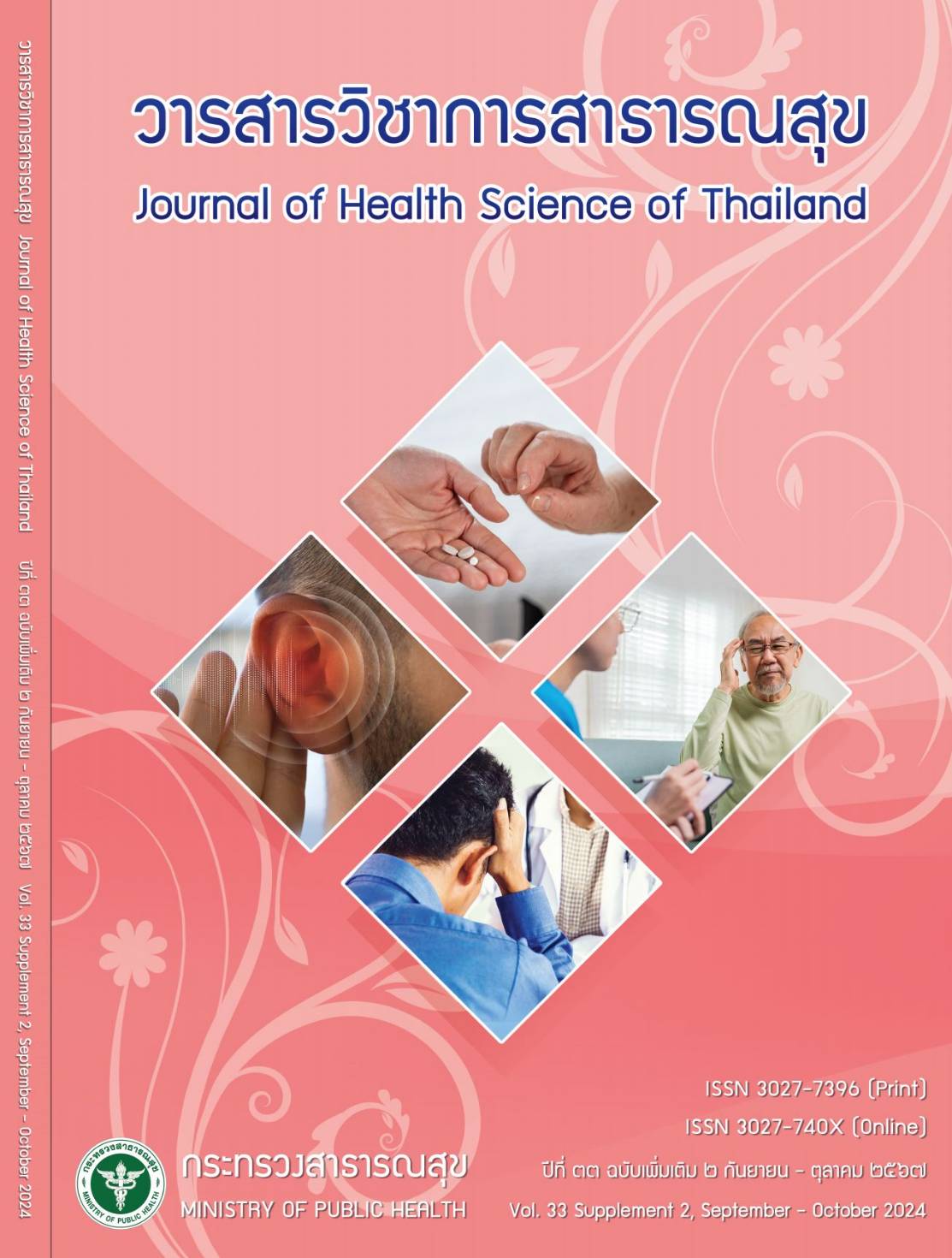The First Implementation of Shorter Course Nine-Month Regimen for MDR-TB Treatment in Thailand, 2017-2018
Keywords:
TB Drug resistant; MDR-TB; Shorter regimen for RR/MDR-TBAbstract
During 2017-2018, Thailand by Division of Tuberculosis, Department of Disease Control, Ministry
of Public Health and national experts for TB-drugs resistant, implemented shorter course regimen (STR)
nine months for multi-drug resistant (MDR) and rifampicin resistant (RR) treatment. The STR regimen
composed of moxifloxacin, protionamide, clofazimine, pyrazinamide, high dose isoniazid, ethambutol,
and kanamycin; and the treatment program was conducted as an operational research following the
recommendation from the World Health Organization. There were 110 TB cases enrolled and 107 of them
received the STR treatment. Most of them aged of 48.67±13.70 years old (19-80 years), with average
weight of 52.50±9.16 kg, and most were male (77.27%). As a result, 80 cases were cured (72.72%);
30 cases were discontinued, and 7 cases died (form hepatitis, heart failure, sepsis, loss of appetite,
malnutrition, suicide and unknown). Changing treatment regimen was observed in 17 cases and other
six cases lost to follow up. More than 95% of cases had sputum conversed to negative after two months
of treatment, and 61.68% conversed after one month. The most common drug reactions were nausea,
vomiting, while one case had hearing loss and and one had renal failure. Seven cases had QT-prolong,
and seven cases had hepatitis; all recovered after adjusted doses. Thus, the pilot STR regimen in Thailand
showed high conversion rate, good adherence, reduced treatment costs and times. However, the STR regimen
required active drug safety and monitoring (aDSM) because some adverse drug event occurred and
required proper managements.
Downloads
Downloads
Published
How to Cite
Issue
Section
License

This work is licensed under a Creative Commons Attribution-NonCommercial-NoDerivatives 4.0 International License.







